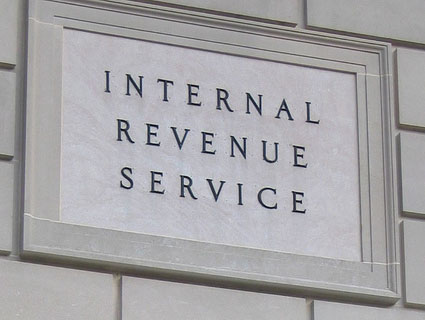The House Ways and Means Committee approved a bill on Thursday that uses the tax code to limit access to abortions in the US. As we’ve reported, the language in the bill extends the ban on federal funding for abortion to the tax code, blocking tax credits from being used for insurance plans that cover abortion services and forbidding tax deductions for the costs of an abortion.
The proposed law would not apply to abortions in cases of rape, incest, or if the life of the mother is at risk. It passed on a straight party line vote on Thursday afternoon.
Republicans say they’re just bringing consistency to federal policies. The bill will “make sure that the destruction of an innocent human life is not subsidized by this government,” says Rep. Kevin Brady (R-Texas). But Democrats and abortion rights advocates argue that the bill would significantly limit the availability of abortions in this country.
The measure, HR 1232, is similar to the language on the tax code included in HR 3, the “No Taxpayer Funding for Abortion Act,” and would likely be incorporated into that bill should it go to the House floor. HR 1232 does clean up some of HR 3’s notoriously vague legislative language, but the bills are similar in many respects.
Like HR 3, HR 1232 blocks small businesses that provide health care to their employees or the self-employed from getting tax credits for their health insurance if they choose a plan that covers abortion. The small business tax credits, worth about $40 billion over ten years, were passed as part of the Democrats’ health care reform law and took effect during the 2010 tax year.
The bill also bars the use of flexible spending arrangements (FSAs) or health savings accounts (HSAs)—which allow employees to set aside pre-tax earnings for medical uses—to pay for abortions. And if a woman does obtain an abortion using FSA or HSA money, she would have the cost of that abortion added to her taxable income.
HR 1232 would also have the impact of reducing the number of health plans that cover abortions, says Donna Crane, policy director of NARAL Pro-Choice America. While 87 percent of plans currently offer abortion coverage, many would likely drop it in order stay cost-competitive with other plans. “That will mean that Americans in this country will have diminished access to abortions,” said Crane. It also means that women who seek an abortion would be forced to pay out of pocket—which can be a sizable cost.
The provisions could also lead to abortion audits—where the IRS is forced to evaluate whether or not an abortion was in fact permissible for tax coverage because it was the result of rape or incest or to save the life of the mother. “Not only is that insensitive, to put burden on woman going through an absolute terrible time in her life, but I don’t think it’s workable,” said Mike Thompson (D-Calif.) in Thursday’s mark-up. “A criminal case wouldn’t fit conveniently within the tax season.”
In explaining the bill in the hearing, Thomas Barthold, the chief of staff for the Joint Committee on Taxation, acknowledged that there is a “gray area” in terms of what is considered to endanger the life of a woman. Similarly, how the IRS would handle evaluating the reason a woman obtained an abortion is also unknown. “If this were to come up in an audit, I’m not exactly sure how it would be resolved,” Barthold said.
Republicans argue that HR 1232 would have “negligible revenue effect,” overall. But Democrats note that the bill would increase the tax burden for individuals and small businesses that want to purchase insurance that covers abortions. Rep. Joseph Crowley (D-NY) introduced an amendment, which was voted down on a party-line vote, that would have nullified the bill should it increase the tax liability for anyone.
That it was voted down, Crowley said afterward, is evidence that Republicans in the committee are “willing to use the tax code for movement on their social agenda,” even if it raises costs for some.















